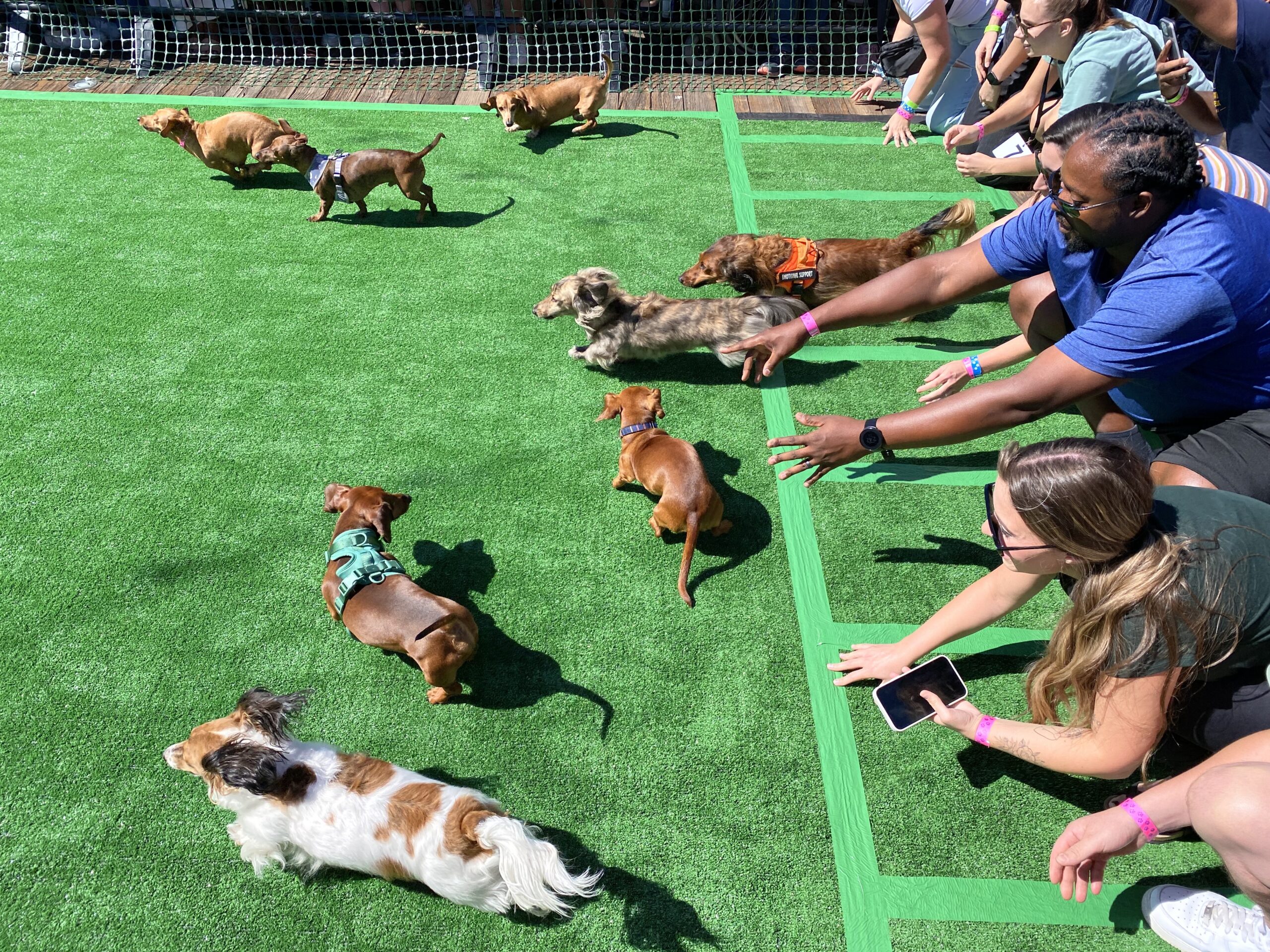When one thinks of racing dogs, Dachshunds are not the first breed that comes to mind. While they can be quite spunky and energetic, their short legs are not effective at propelling them very far. Nevertheless, the 11th annual Wiener 500 Dachshund Dash on September 16th once again showed the people of Washington, DC that these low lying dogs can also slay their moment in the racing spotlight.
The Wiener 500 Dachshund Dash is an yearly charity sporting event at The Wharf DC which supports Rural Dog Rescue and is held as part of Oktoberfest. Over the course of the three hour event, a total of 128 dogs compete to see which dog can beat the others down the approximately 70 foot track. The first round of races consists of 16 heats, each containing eight dogs. The winner of each heat is then entered into one of two semi-final rounds. The top four dogs in each semi-final go to the finals where the top three dogs are showered with prizes: treat baskets and a cash prize.
The dogs begin the race in the arms of one of their owners at the starting line. Once the starting signal is given (the crowd yelling “prost”), the dogs are released. Another one of their owners stands at the finish line to creatively coax the dog into running within the regulations of the race: dogs may not be pushed or thrown on the track, and they may not be tempted to the finish line with treats or any other special items. To be declared the winner, the full dog—nose to tail—must have passed the finish line.
While some Dachshunds are very quick—the winner of each heat usually crosses the finish line in about 5 seconds—others never make it to the finish line. Some heats saw more than half the participants turn around halfway through and return to the starting line. A dog named Fauci never left the hands of his starting line owner and refused to move.
Another common occurrence is that dogs will forget their goal and get distracted. In heat four, one dog cut another off in an attempt to play. Other dogs were so excited to be running that they ran past the finish line, past their owners, and almost escaped down the Wharf. This year, netting was added to the barriers around the track to prevent the shortest dogs from slipping under the barrier and into the crowd—a problem the event encountered last year.
The race is also inclusive. Bella, a dog with a mobility aid, was allowed to participate in heat eleven. Though some may have expected the wheels that replaced her hind legs to make her speedier than the other dogs, she did not budge from the start line.
Eight particularly speedy dogs made it to the final: Beans, Nutmeg, Archie, Ellie, Beanz, Quila, Henry, and Willow. The odds seemed to be in Archie’s favor—not only was he last year’s Dachshund Dash winner, he had won the first semi-final with the fastest time of the evening at 3.39 seconds. Archie, however, placed third on the podium in the end. The winner and runner up ran such a close race that, after much deliberation and many reviews of the slow motion footage at the finish line, it was announced that Willow’s victory over Quila was decided by just one tuft of tail hair. Their victory over Archie was surprising, as both of these dogs were bested by Beanz in the second semifinal, who had run a 4.01 second race. Willow’s winning time was 3.73 seconds.
For those who are interested in entering their wiener dog in the race next year, there seem to be two great ways to ensure your dog makes it to the podium: Not training and being a rookie. When asked whether they prepared for the race, Archie’s owner replied “We didn’t train at all.” Not only that, when Archie won last year, it was his first ever appearance in the Wiener 500. Willow’s owner shares a similar story: “Willow was not trained. Willow’s dog park got infested by rats. This is Willow’s first race.”





